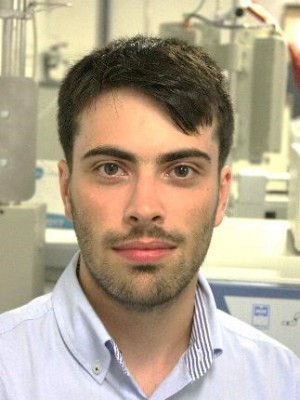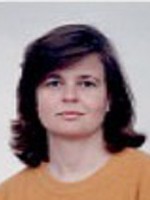abstract
Molecular dynamics simulations employing the all-atom optimized potential for liquid simulations (OPLS-AA) force field were performed for determining self-diffusion coefficients (D11) of ethanol and tracer diffusion coefficients (D12) of solutes in ethanol at several temperature and pressure conditions. For simulations employing the original OPLS-AA diameter of ethanol's oxygen atom (sOH), calculated and experimental diffusivities of protic solutes differed by more than 25%. To correct this behavior, the sOH was reoptimized using the experimental D12 of quercetin and of gallic acid in liquid ethanol as benchmarks. A substantial improvement of the calculated diffusivities was found by changing sOH from its original value (0.312 nm) to 0.306 nm, with average absolute relative deviations (AARD) of 3.71% and 4.59% for quercetin and gallic acid, respectively. The new sOH value was further tested by computing D12 of ibuprofen and butan-1-ol in liquid ethanol with AARDs of 1.55% and 4.81%, respectively. A significant improvement was also obtained for the D11 of ethanol with AARD = 3.51%. It was also demonstrated that in the case of diffusion coefficients of non-polar solutes in ethanol, the original sOH=0.312 nm should be used for better agreement with experiment. If equilibrium properties such as enthalpy of vaporization and density are estimated, the original diameter should be once again adopted.
keywords
SELF-DIFFUSION; MOLECULAR-DYNAMICS; TRANSPORT-PROPERTIES; DENSITY-MEASUREMENTS; SUPERCRITICAL CO2; HARD-SPHERE; PRESSURE; ALCOHOLS; LIQUIDS; TEMPERATURE
subject category
Biochemistry & Molecular Biology; Chemistry
authors
Zêzere, B; Fonseca, TVB; Portugal, I; Simoes, MMQ; Silva, CM; Gomes, JRB
our authors
Groups
G4 - Renewable Materials and Circular Economy
G6 - Virtual Materials and Artificial Intelligence
Projects
CICECO - Aveiro Institute of Materials (UIDB/50011/2020)
CICECO - Aveiro Institute of Materials (UIDP/50011/2020)
Associated Laboratory CICECO-Aveiro Institute of Materials (LA/P/0006/2020)
Desenvolvimento de rolhas de cortiça produzidas por processos mais verdes e sustentáveis (GCORK)
acknowledgements
This work was developed within the scope of the project CICECO-Aveiro Institute of Materials, UIDB/50011/2020, UIDP/50011/2020, and LA/P/0006/2020, financed by national funds through the FCT/MEC (PIDDAC) and also through project GCORK, POCI-01-0247-FEDER-070302. Bruno Zezere thanks FCT for the PhD grant SFRH/BD/137751/2018.





